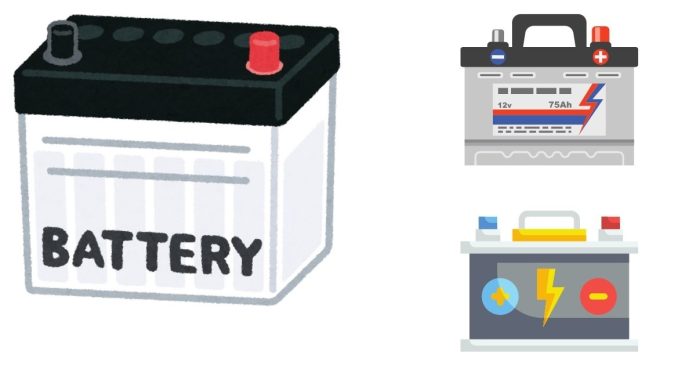Car batteries are essential for starting your vehicle and powering its electrical systems. But like all components, they don’t last forever. If you’re wondering how long a car battery should last and what factors influence its lifespan, here’s what you need to know.
Average Lifespan of a Car Battery
On average, a car battery lasts 3 to 5 years. However, this can vary depending on several factors, including the type of battery, climate, driving habits, and maintenance practices.
- Traditional Lead-Acid Batteries: These typically last around 3–4 years.
- Absorbent Glass Mat (AGM) Batteries: These are more durable and can last up to 5–6 years or more, depending on usage.
Factors That Affect Battery Life
- Climate
- Extreme Heat: High temperatures can cause the liquid inside the battery to evaporate, shortening its lifespan. This is why car batteries in hot climates tend to die sooner.
- Extreme Cold: Freezing temperatures slow down the chemical reactions inside the battery, making it harder for the engine to start. Frequent exposure to extreme cold can also reduce battery life.
- Driving Habits
- Short Trips: If you mostly drive short distances, the alternator may not have enough time to fully recharge the battery, which can lead to premature failure.
- Long Periods of Inactivity: Letting a car sit idle for weeks or months without use can drain the battery and shorten its lifespan.
- Electrical Load
- Modern cars are equipped with a variety of electronic features, such as GPS, entertainment systems, and heated seats. The more devices you run, the harder your battery works, which can reduce its lifespan.
- Maintenance
- Corrosion: Corrosion around the terminals can impede the flow of electricity and shorten the battery’s life.
- Low Fluid Levels: For certain types of batteries, if the fluid inside drops too low, the battery may overheat and fail.
- Battery Quality and Type
- Cheaper batteries often have shorter lifespans compared to premium ones. Investing in a high-quality battery can pay off in the long run.
Signs Your Battery Might Be Dying
Before your battery fails completely, it often shows warning signs:
- Slow Engine Crank: If your engine takes longer than usual to start, your battery may be struggling.
- Dim Lights: If the headlights or interior lights seem dimmer than usual, the battery might not be holding a full charge.
- Check Engine or Battery Warning Light: Some cars have dashboard indicators to signal battery issues.
- Corrosion on Terminals: Visible buildup around the battery terminals can signal a problem.
- Swollen Battery Case: Extreme temperatures can cause the battery case to swell, indicating internal damage.
- Frequent Jump Starts: If you’re constantly needing a jump start, it’s time for a replacement.
How to Extend the Life of Your Car Battery
- Regular Maintenance: Clean the terminals and ensure they’re tightly connected.
- Limit Short Trips: Combine errands to drive longer distances and allow the alternator to recharge the battery fully.
- Turn Off Electronics: Make sure headlights, interior lights, and other electronics are off when the car isn’t running.
- Use a Battery Maintainer: If your car will sit idle for extended periods, a battery maintainer or trickle charger can keep the battery healthy.
- Protect from Extreme Temperatures: Park in a garage or shaded area to shield your car from extreme heat or cold.
When to Replace Your Battery
Even with proper care, all car batteries will eventually need replacement. Most experts recommend testing your battery after 3 years of use, especially if you notice any signs of weakness. Many auto shops offer free battery testing to help you determine whether it’s time for a new one.
Car batteries typically last 3 to 5 years, but this depends on factors like climate, driving habits, and maintenance. Keeping your battery in good condition with regular care can help maximize its lifespan. However, it’s important to monitor its performance and replace it when needed to avoid being stranded. Investing in a high-quality battery and taking preventive measures can save you time, money, and hassle in the long run.


